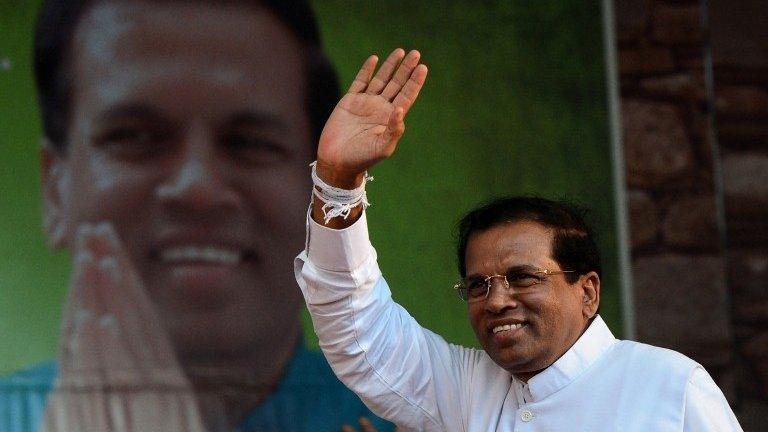Sri Lanka: Office of Missing Persons seeks 'disappeared'
- Published
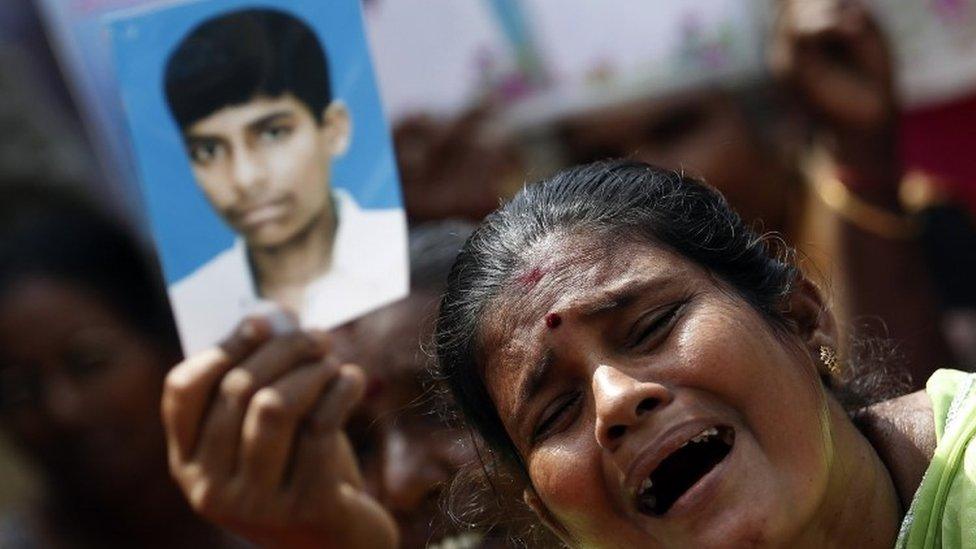
Tamil people have held regular protests calling on the authorities to investigate disappearances
Sri Lanka is to set up an office to locate thousands of people still missing seven years after the defeat of separatist Tamil Tiger rebels, the foreign ministry has announced.
The office will have powers to investigate the disappearance of more than 20,000 people in decades of fighting that ended in 2009.
It will be asked to recommend compensation to bereaved families.
It will also empower them to take legal action against those responsible.
'Legal remedies'
"The need to set up such an office is particularly acute as Sri Lanka has one of the largest caseloads of missing persons in the world," Foreign Minister Mangala Samaraweera said in a statement.
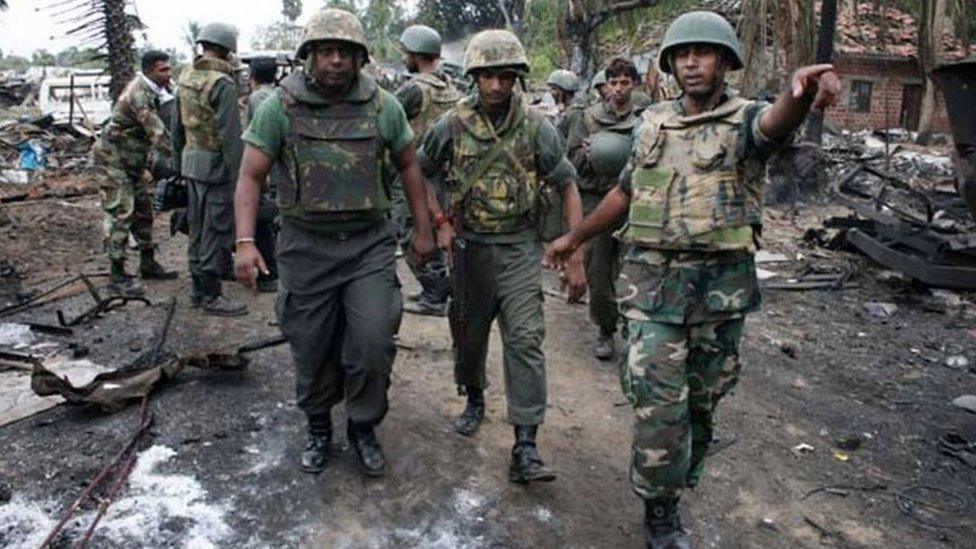
The army defeated the Tamil Tigers in a bitterly fought offensive at the end of the war
He said a vast number of cases remain unsolved even though the war ended so long ago.
Relatives of missing persons have the right to know their whereabouts and the "truth about what happened" to their loved ones, the statement said.
"This allows them the possibility of 'closure' and also enables them to seek appropriate legal remedies," it said.
The Office of Missing Persons (OMP) will be asked to recommend compensation and clear the way for families of the dead to take legal action against anyone responsible for the disappearances of their loved ones, Mr Samaraweera said.
But ministers are not optimistic that many of those missing will be found.
"There are lists of missing people and I am afraid most of them may not be among the living," Prime Minister Ranil Wickremesinghe told members of the ethnic Tamil minority earlier this year.
Abductions claim
The army defeated the Tamil Tigers in a bitterly fought offensive at the end of the war amid allegations that troops killed at least 40,000 Tamil civilians in the final months.
Sri Lanka's nationalist leader at the time, Mahinda Rajapaksa, deflected foreign pressure to investigate war crimes.
However his successor Maithripala Sirisena - who became president in January 2015 - agreed to a domestic probe into possible infringements of international humanitarian law.
The mostly Tamil families of the missing have held demonstrations to support their cause. Some of them have complained that they have been abducted or arrested by the police while staging their protests.
As many as 100,000 people are thought to have died in the conflict.
- Published21 January 2016
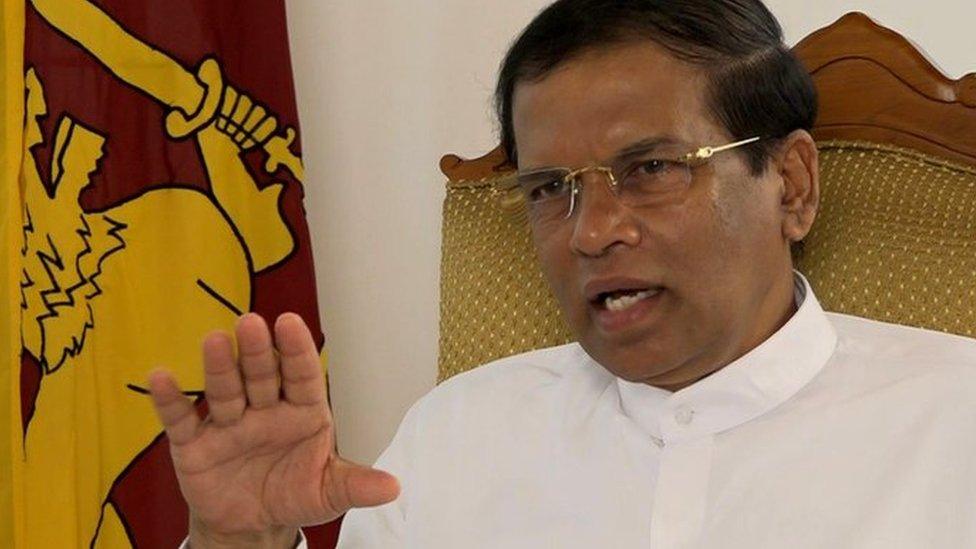
- Published6 February 2016
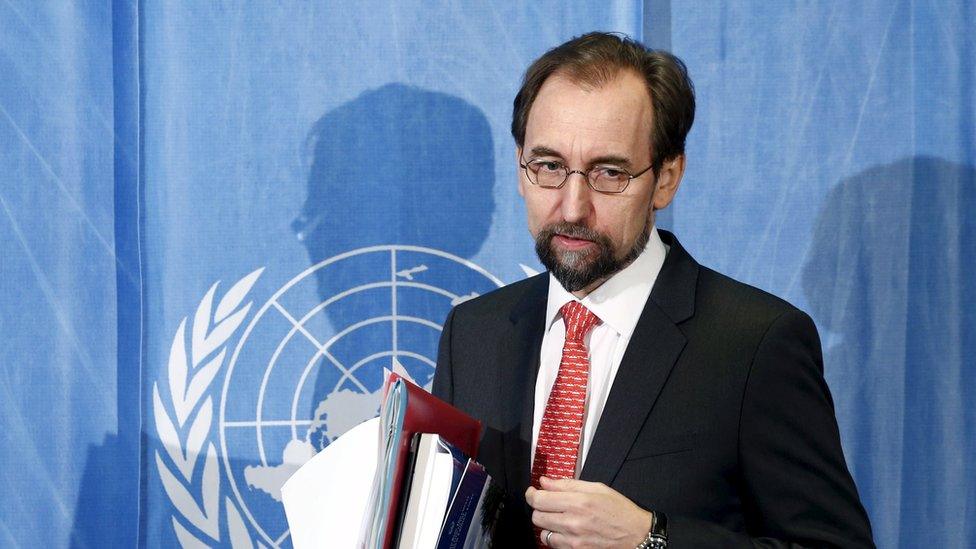
- Published6 February 2016
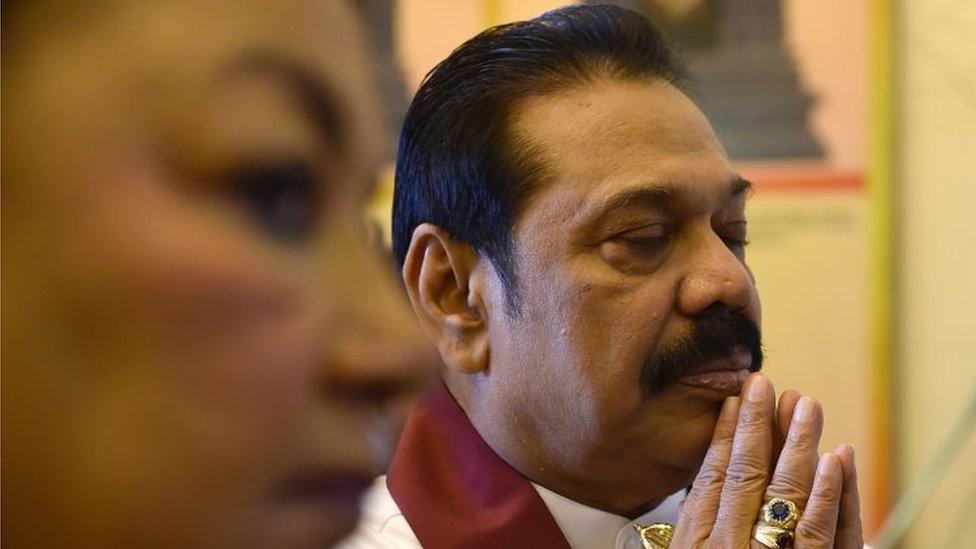
- Published7 January 2016
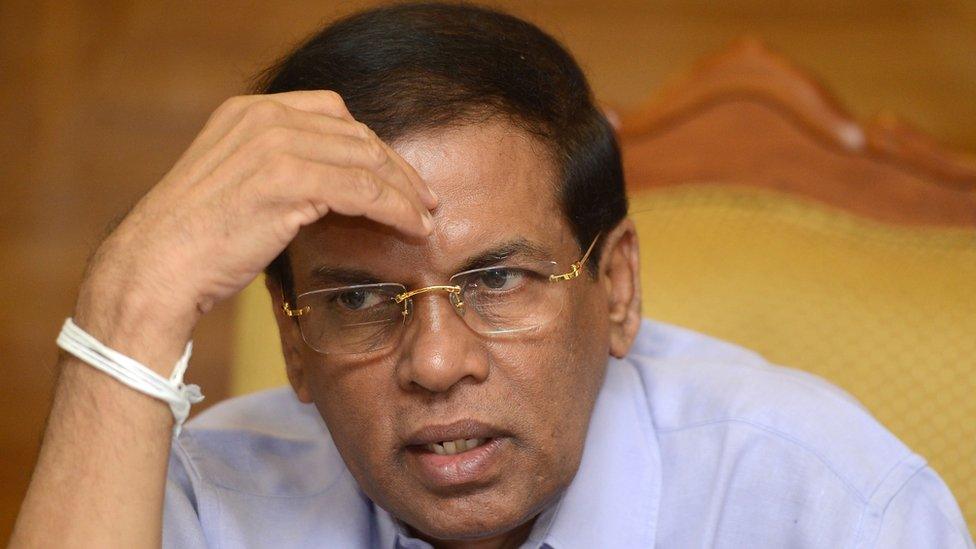
- Published21 October 2015
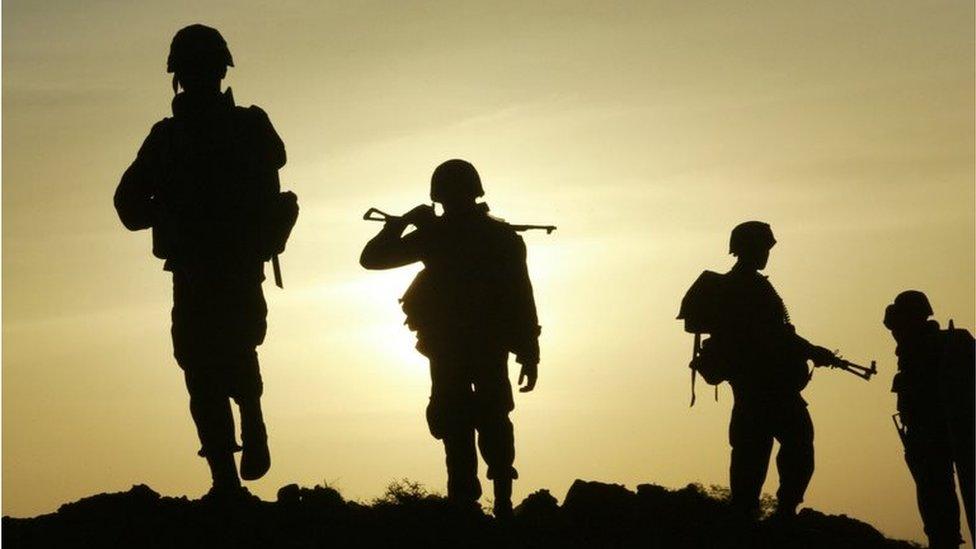
- Published16 September 2015
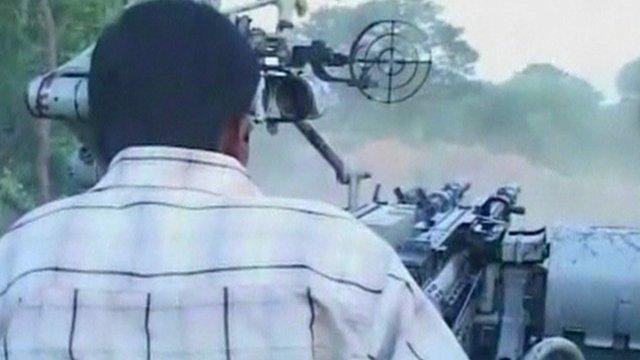
- Published14 August 2015
